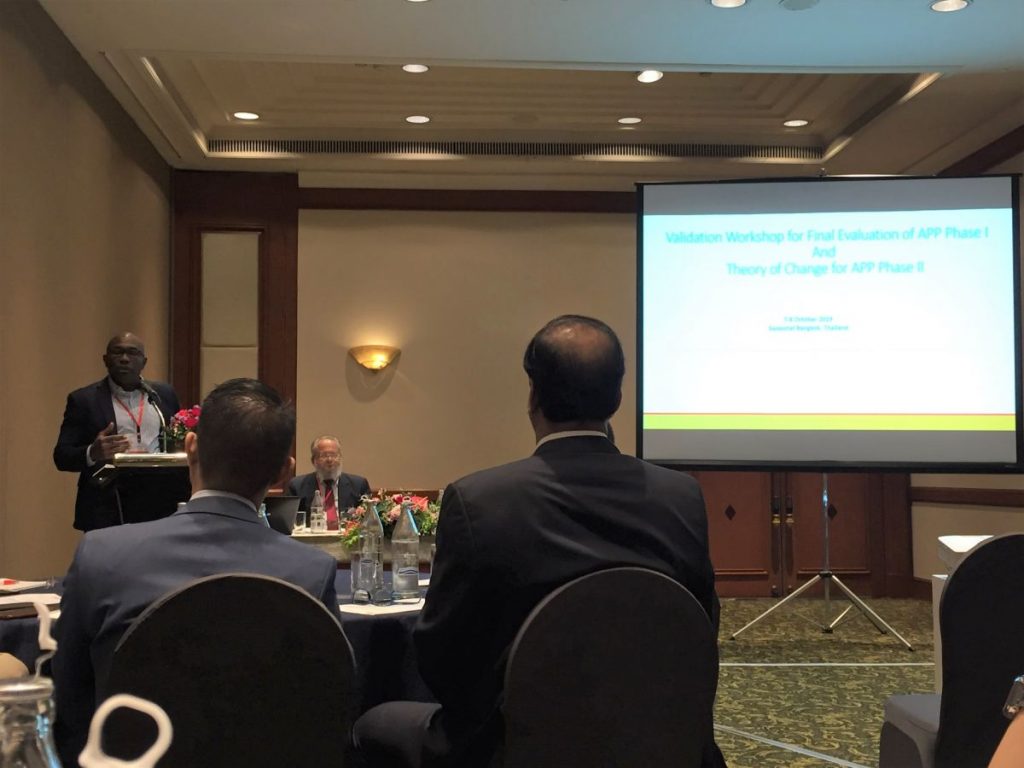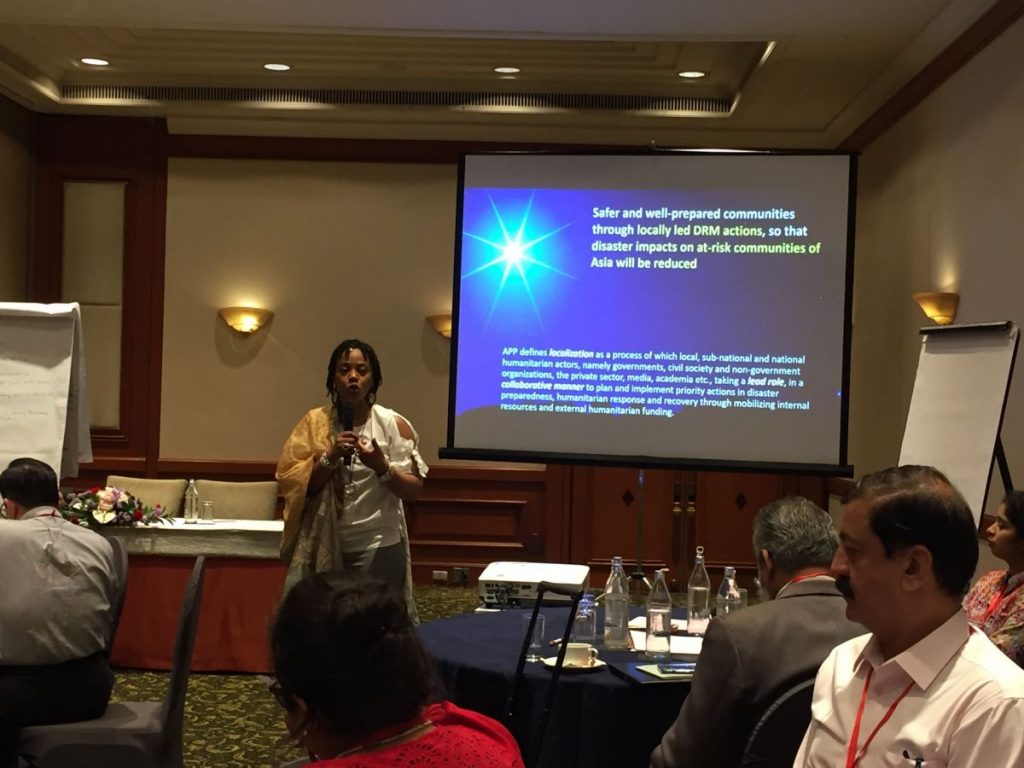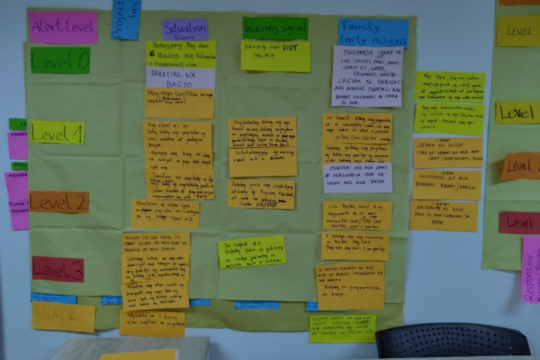The Asian Preparedness Partnership (APP) completes its first phase of implementation from 2016 – 19 in the six Asian countries of Cambodia, Myanmar, Nepal, Pakistan, Philippines and Sri Lanka. It is that time of the year when we get together with our partners to pause and reflect on our journey till now. To evaluate and review how the program, its processes, outputs, and outcomes have contributed and or attributed to strengthening the emergency response capacity of local humanitarian actors, APP with representatives from National Preparedness Partnerships, organized a validation and theory of change workshop in Bangkok, Thailand.

The 2-day workshop from 7-8 October 2019 saw deliberations on the evaluation exercise, results and lessons from the 3-year mobilization phase of APP. Further, partners discussed on prioritizing the new co-elements of the program and identifying the impact pathway towards strengthening emergency response capacity of local humanitarian actors. The workshop also oversaw inputs on designing the ‘Theory of Change’ for APP (2019 – 22) to reach the North Star.

Dr. Valerie Bemo, Deputy Director, Emergency Response in the Bill & Melinda Gates Foundation (BMGF) emphasized that APP demonstrates how leaders can make a big difference in the humanitarian space. Dr. Elvis Fraser from Sankofa Consulting guided the participants on the significance of having a theory of change, identifying pre-conditions, assumptions and undermining factors that can derail achieving outcomes in countries. The theory of change exercise is a dynamic tool to reflect and look at the pathway to change, and altering our activities according to changing dynamics and situations.
The two-day event was followed by the first APP Leadership Forum facilitated by BMGF in Khao Yai, Thailand. Coined as the SILK program – Self-Inspired Leadership Kanvas, it is designed to help leaders from the South to evolve and develop their inner capacities so that they can be better equipped to lead their contribution to Global South challenges and in this case to contribute to a safer and resilient Asia. The SILK approach is inspired by the silk worm journey and transformation that the silk worm undergoes to make silk. It also builds on the life of inspiring humblers, self-reflective, transformational and inspirational world leaders. The SILK approach views the leader as an inspired artist that can create a Kanvas – a personal blueprint for how to lead. The co-chairs of the Steering Committee along with ADPC participated in the 4-days leadership forum.


